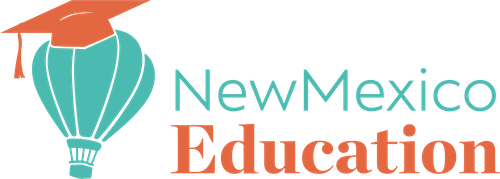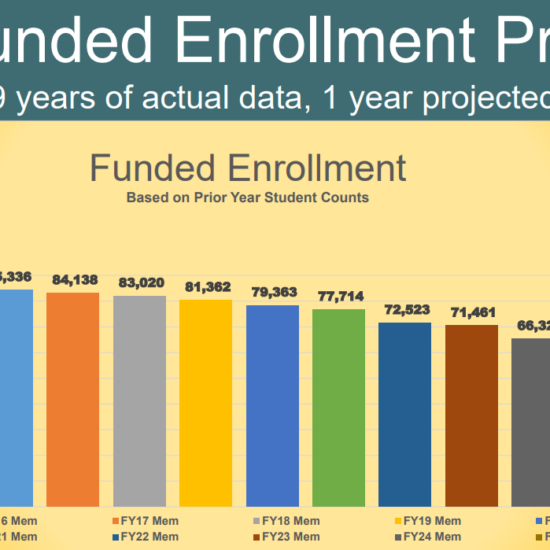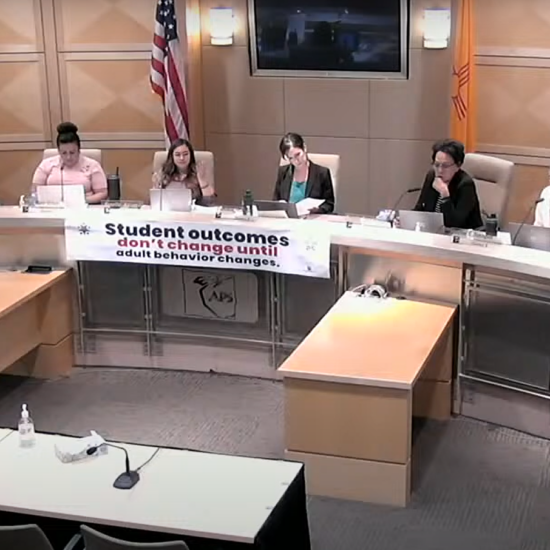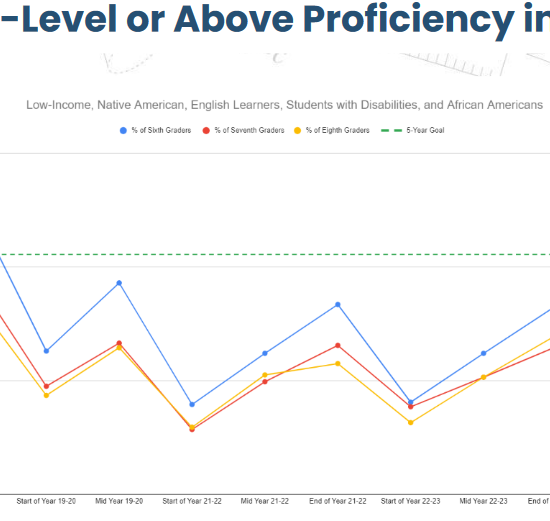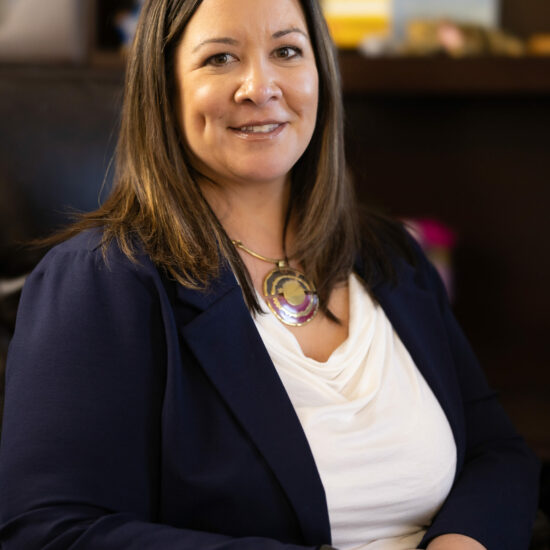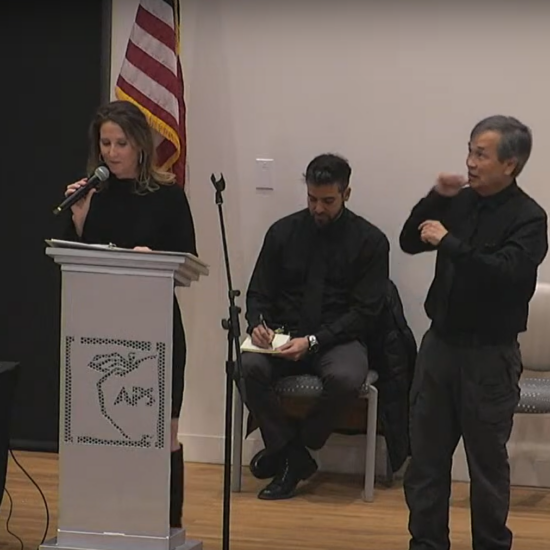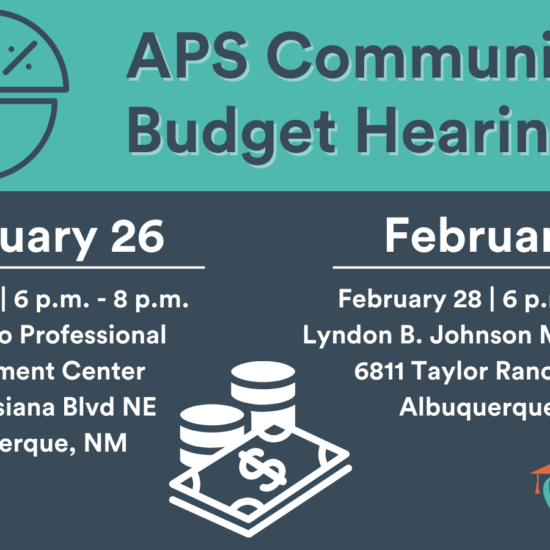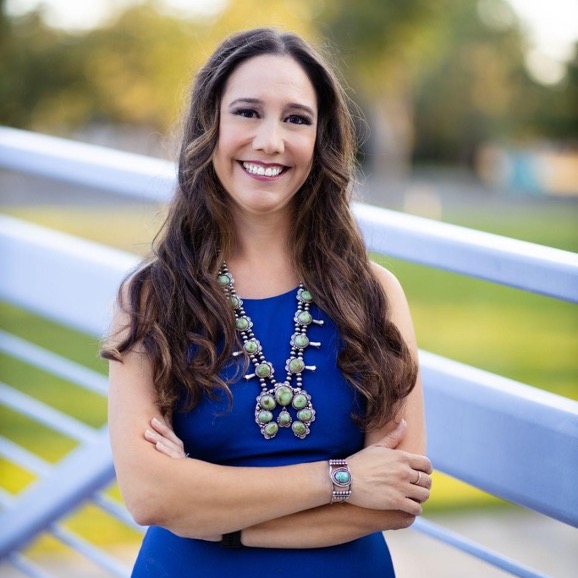
Recently elected Albuquerque school board member Danielle Gonzales will bring a unique insider-outsider perspective to her board service.
Born and raised in Albuquerque, Gonzales is a product of Albuquerque Public Schools, and her four children are now APS elementary and middle school students.
But Gonzales also spent many years living elsewhere, most notably Washington, D.C., before moving back to Albuquerque in 2020. More than a decade of work in education philanthropy gave her an expansive view of education improvement efforts in cities and states across the country.
That can only be a healthy perspective to bring to APS, which has historically been an insular system, at times less than welcoming to outside perspectives. Gonzales and three other newly elected board members comprise a new majority on the APS board, which could shift the district’s direction over the next several years.
New Mexico Education recently spoke with Gonzales about her background, her views on public education, and her goals and ambitions for APS. The following interview has been edited for length and clarity.
New Mexico Education: Please tell us a bit about your background in education policy and philanthropy, and how that has shaped your views.
Danielle Gonzales: I grew up and was raised here in Albuquerque, but spent a significant portion of my career working out of state, entirely on education and education policy. I have worked in philanthropy for about 11 years both at the Bill and Melinda Gates Foundation and at the Pew Charitable Trusts. Currently I work at The Aspen Institute, where I have been for seven years.
By virtue of that work, I’ve had the opportunity to see from up close a lot of the education reform strategies, solutions, promising practices and also failures or mistakes – lessons learned across the country as we’ve been on this broader education reform journey.
NME: What prompted you to run for school board?
Gonzales: When we moved back, I experienced a pretty big, pretty jarring disconnect between what I saw happening in APS and what I knew professionally about how many large districts across the country were responding to the pandemic, and also how they were supporting students and families.
One of the things that we did at the Aspen Institute was host the National Commission on Social Emotional and Academic Development. So I had the opportunity to be around tables with superintendents and chief academic officers, chief school officers and congressional staff and state school officers from all across the country. I learned more than I’d ever known about brain science and how that could and should influence education. And compared to APS, other districts have been much more responsive to the research on social and emotional and academic development.
And as a parent here, I wasn’t experiencing any of those same promising practices. It was pretty disappointing. My kids were not in school but on Zoom for a long time, and they were bringing home below-grade-level work.
I observed no particular focus on the family-school connection, no particular focus on social and emotional wellbeing or mental health. And these are the things that we know work. So that was pretty disappointing.
So that was the reason I started thinking about maybe, possibly running. That coincided with the fact that the incumbent, who had been on the board for 12 years, decided not to run again. The seat was going to be vacant. The fact that there were going to be four vacant seats raised the real possibility of bringing in some new blood, which the system needs.
I also felt it was important to bring a parent’s perspective to the board. No one on the board at the time had school-aged children. After all, it’s parents and kids who are really living through and experiencing all of this.
NME: Before you moved back, you children attended public schools in Washington, D.C. How did that experience contrast with what you saw in APS?
Gonzales: So DCPS has done some really amazing work in the area of academic instruction, along with the school climate and social emotional wellbeing of students. I saw there that you can do it and you can integrate it and I think the work in DCPS with the Cornerstones curriculum was particularly impressive because it was culturally relevant and it was grade level and it was a guarantee that every single kid got grade level content every year, no matter what neighborhood they lived in.
Again, that’s just one specific example of the type of thing that I knew could be done here. And yet when I talked to people here, I would hear so frequently, ‘well the district is too big. It’s too challenging.’ Lots of excuses, frankly. But if Chicago could do it, if DC could do it, if Denver and Baltimore could do it, then Albuquerque could do it, too.
NME: What do you hope to accomplish during your time on the APS board?
Gonzales: Bringing strategies that are proven, that we know work, from other urban districts to Albuquerque. Putting in place a real strategy around curriculum and instruction with real measurable goals, and bringing a focus on social emotional and mental health. And I think that’s a tremendous opportunity we have here.
That opportunity was there before the pandemic, and after the pandemic we have a real opportunity to use some of the (pandemic relief) dollars to really invest in professional development and support for educators and all school based personnel.
NME: What do you see as some of the biggest challenges you will face?
Gonzales: One is this notion I mentioned before, around being very skeptical about external things. Just this notion that we’re different and it’s not going to work here. Or that it’s just too big to change.
All of the challenges that urban districts are facing across the country we’re facing too. Teacher shortages is a huge one. Declining enrollment is another one. Obviously learning loss is another. If you think about the teacher shortages, plus declining enrollment, and implications for budget, that’s a huge challenge, because budget is arguably the biggest thing that the school board does. And the enrollment has been declining for a while now. So that’s going to be a big challenge.
In D.C., the school district successfully won back community trust by setting goals around enrollment, and setting goals around parent satisfaction. That was part of the strategic plan. And there was accountability on those things. Those were part of a principal’s evaluation. So I do think there are ways to use accountability and policy to make the kind of change that we want to make. But I do think it’s going to be a very uphill battle.
NME: Last question. What made you decide to move back home after so long away?
Gonzales: I’d been wanting to move back for a long time. I feel very connected to my hometown and to my community. Watching the city from afar and seeing the lack of action spurred me to contribute and to try to give back. Having spent my whole career in education, I wanted to come back and find a way to help advance New Mexico and contribute to New Mexico education.
